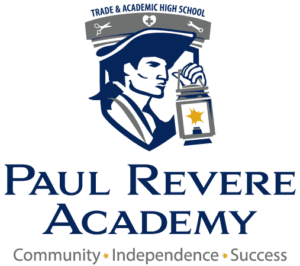
The Evolving Landscape of Music Education: Embracing Technology's Potential
In this week’s episode of the American Classroom podcast, host Jared Taylor welcomed back Jason Barney, a seasoned musician, music producer, and technology enthusiast. With his diverse background spanning instrumental music, music theory, composition, and even internet entrepreneurship, Jason brings a unique perspective to the intersection of music education and technology.
As our world becomes increasingly digital, the realm of music education is not immune to technological advancements. From AI-powered tools to sophisticated recording software, technology is reshaping how we learn, create, and appreciate music. In this post, we'll explore the transformative role of technology in music education, drawing insights from Jason's experiences and observations.
The Democratization of Music Production
Gone are the days when creating professional-quality music required access to expensive recording studios and equipment. Today, technology has leveled the playing field, making music production accessible to aspiring musicians of all ages and backgrounds.
Jason highlights the power of modern music production software like Apple Logic Pro. For a one-time fee of $300, users gain access to tools that rival those used by Grammy-winning artists. This democratization of music production means that students can experiment, create, and learn in ways that were previously unimaginable.
The accessibility of these tools doesn't just benefit those aspiring to careers in music. It opens up new avenues for creative expression and learning for all students. Even those who may never pursue music professionally can gain valuable skills and experiences through digital music creation.
However, this accessibility also raises questions about the role of traditional music education. As students gain the ability to create complex compositions on their laptops, how does this change the way we teach music theory, composition, and performance? Educators must adapt their curricula to incorporate these new tools while still emphasizing the fundamental principles of music.
AI in Music Education: Friend or Foe?
Artificial Intelligence is making its way into every industry, and music education is no exception. Jason discusses recent developments in AI-powered music tools, such as AI bass players and keyboard players in software like Apple Logic Pro.
These AI tools can serve as valuable learning aids for students. For instance, an aspiring bassist can study AI-generated bass lines to understand different styles and techniques. Similarly, a budding composer can use AI-powered orchestration tools to hear how their compositions might sound when played by a full orchestra.
However, the integration of AI in music education also raises concerns. Some worry that these tools might replace the need for human creativity or diminish the value of traditional musical skills. Jason argues that while AI can be a powerful tool, it's unlikely to replace the emotional depth and authenticity of human-created music.
The key lies in finding the right balance. Educators should embrace AI as a tool to enhance learning, not as a replacement for human creativity and skill. By teaching students how to use AI effectively, we can prepare them for a future where technology and human creativity work hand in hand.
Technology as a Bridge to Professional Experiences
One of the most exciting aspects of technology in music education is its ability to provide students with experiences that mimic professional settings. Jason shares his experiences with software that can simulate the sound of a full orchestra playing a composition.
These tools allow students to:
- Hear their compositions played by virtual instruments that sound remarkably like real orchestras
- Experiment with different instrumentations and arrangements
- Understand the nuances of orchestration in a way that was previously only possible with access to a live orchestra
While these simulations can't fully replace the experience of working with live musicians, they provide invaluable learning opportunities. Students can iterate on their compositions, hearing how changes affect the overall sound in real-time. This immediate feedback loop accelerates the learning process and allows for more experimentation.
Moreover, these technologies prepare students for the realities of the modern music industry. As more music production happens in digital environments, familiarity with these tools becomes increasingly important for aspiring professionals.
The Changing Economics of Music Education
Technology isn't just changing how we create and learn music; it's also reshaping the economics of the music industry and music education. Jason touches on how digital platforms have disrupted traditional revenue streams for musicians, with streaming services often paying artists far less than physical album sales once did.
This shift has implications for music education. As the pathways to making a living in music change, educators must prepare students for this new reality. This might involve teaching skills beyond just musical performance, such as music production, digital marketing, and entrepreneurship.
At the same time, technology opens up new opportunities for music educators. Online platforms allow teachers to reach students beyond their local area, potentially increasing their earning potential. Digital tools also make it easier to create and distribute educational content, from video lessons to interactive apps.
However, Jason emphasizes that the value of music education goes beyond just preparing students for careers in music. Music education develops creativity, discipline, and emotional intelligence – skills that are valuable in any field. As such, he argues for the importance of preserving and expanding music education programs in schools, even as technology changes the landscape.
Embracing Technology for a Richer Music Education
As we've explored, technology is profoundly impacting music education, offering new tools for creation, new pathways for learning, and new challenges to navigate. While some may view these changes with trepidation, Jason's perspective encourages us to see the opportunities.
By embracing technology in music education, we can:
- Make music creation and learning more accessible to all students
- Provide experiences that were once only available to professionals
- Prepare students for the realities of the modern music industry
- Enhance traditional music education with new tools and perspectives
However, it's crucial to remember that technology is a tool, not a replacement for human creativity and emotion. The goal should be to use technology to enhance and expand music education, not to replace the fundamental human elements that make music so powerful.
As educators, students, and music enthusiasts, we have the opportunity to shape how technology is integrated into music education. By staying informed about new developments, experimenting with new tools, and always keeping the focus on fostering creativity and musical understanding, we can ensure that music education remains vibrant and relevant in the digital age.
So, what can you do to explore how technology can play a bigger role in music education? Here are a few suggestions:
- If you're an educator, consider incorporating digital music creation tools into your curriculum.
- If you're a student, experiment with free or low-cost music production software to expand your skills.
- If you're a parent, encourage your child's school to invest in technology for their music program.
- If you're a music enthusiast, support initiatives that bring technology-enhanced music education to underserved communities.
By embracing the potential of technology in music education, we can ensure that the next generation of musicians and music lovers have the tools they need to express themselves, create beautiful music, and carry forward the rich tradition of musical expression. The future of music education is here – let's make it a harmonious blend of tradition and innovation.



















Comments